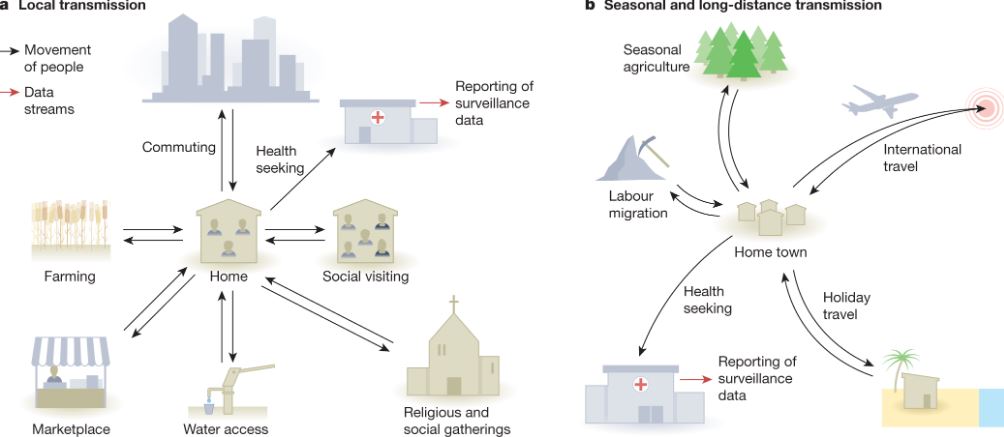Introduction:
In a world shaped by global connectivity and rapid travel, the threat of infectious diseases looms large. The impact of pandemics and outbreaks on individuals, businesses, and economies has underscored the need for proactive risk management. Infectious disease insurance, a relatively novel and specialized form of coverage, has gained prominence as a strategic tool for mitigating the financial consequences associated with the spread of infectious diseases. In this comprehensive guide, we will explore the realm of infectious disease insurance, delving into its importance, key features, and the considerations that make it a crucial aspect of risk preparedness.
I. The Global Landscape of Infectious Diseases
The emergence and spread of infectious diseases pose significant challenges to public health, economies, and societies at large. Recent events, such as the COVID-19 pandemic, have highlighted the interconnectedness of our world and the vulnerability of individuals and businesses to the rapid transmission of diseases. Infectious diseases can lead to widespread illness, strain healthcare systems, disrupt supply chains, and have far-reaching economic implications.
II. Understanding Infectious Disease Insurance
Infectious disease insurance, also known as pandemic insurance or epidemic insurance, is a specialized form of coverage designed to provide financial protection in the event of an outbreak of infectious diseases. Unlike traditional insurance policies that often exclude coverage for pandemics, infectious disease insurance is tailored to address the unique challenges associated with the spread of contagious diseases.
III. Key Features of Infectious Disease Insurance
1. Business Interruption Coverage: Infectious disease insurance typically includes coverage for business interruption losses resulting from the closure or restriction of operations due to a covered infectious disease event. This can encompass the costs of lost revenue, employee salaries, and ongoing fixed expenses.
2. Event Cancellation Insurance: For businesses and organizations that plan events, infectious disease insurance can provide coverage for financial losses resulting from the cancellation, postponement, or disruption of events due to an infectious disease outbreak.
3. Extra Expense Coverage: Infectious disease insurance may cover additional expenses incurred by businesses to prevent or mitigate the spread of infectious diseases. This can include the costs of implementing safety measures, sanitization efforts, and other preventive measures.
4. Contingent Business Interruption Coverage: This aspect of infectious disease insurance provides coverage for losses incurred by businesses due to disruptions in the operations of their suppliers or customers resulting from an infectious disease event.
5. Civil Authority Coverage: Businesses affected by government-mandated closures or restrictions related to an infectious disease outbreak may be eligible for coverage under civil authority provisions within infectious disease insurance policies.
6. Communicable Disease Liability Coverage: Some infectious disease insurance policies may include coverage for liability claims arising from allegations of negligence related to the spread of infectious diseases. This can be relevant for businesses in the healthcare, hospitality, and service industries.
7. Parametric Triggers: Infectious disease insurance policies may use parametric triggers, which are predefined conditions or indices that, when met, trigger a payout. Parametric triggers enhance the speed and transparency of claims processing, providing timely financial support.
IV. Industries Benefiting from Infectious Disease Insurance
1. Hospitality and Tourism: The hospitality and tourism industries are highly susceptible to the impact of infectious diseases. Infectious disease insurance provides financial protection for hotels, restaurants, airlines, and travel agencies facing business interruption, event cancellations, and a decline in tourism.
2. Event Organizers: Businesses involved in organizing events, conferences, and exhibitions can benefit from infectious disease insurance to mitigate the financial risks associated with event cancellations or disruptions due to contagious diseases.
3. Healthcare Providers: Hospitals, clinics, and healthcare facilities can utilize infectious disease insurance to manage the financial risks associated with increased patient loads, operational disruptions, and liability claims during infectious disease outbreaks.
4. Retailers: Retail businesses, especially those with physical locations, may face business interruption and supply chain disruptions during infectious disease events. Infectious disease insurance helps protect against the financial impact of these challenges.
5. Manufacturing and Supply Chain: Companies with intricate supply chains may experience disruptions due to the spread of infectious diseases. Infectious disease insurance offers coverage for business interruption and extra expenses incurred in adjusting or relocating production.
6. Educational Institutions: Schools, colleges, and universities can safeguard their financial stability with infectious disease insurance. This coverage addresses potential business interruption, event cancellations, and the costs associated with transitioning to remote learning during outbreaks.
7. Sports and Entertainment: The sports and entertainment industries often rely on events and gatherings for revenue. Infectious disease insurance provides financial protection against losses resulting from event cancellations, attendance restrictions, and business interruptions.
VIII. Conclusion: Building Resilience in the Face of Infectious Diseases
In conclusion, the landscape of infectious diseases presents a complex and evolving set of challenges that demand a multifaceted approach to risk management. Infectious disease insurance stands as a critical tool in building resilience against the financial consequences of outbreaks, providing businesses and organizations with the means to navigate uncertainties with greater confidence.
As the world grapples with the ongoing impact of the COVID-19 pandemic and remains vigilant against future infectious disease threats, the importance of proactive risk preparedness cannot be overstated. Businesses that integrate infectious disease insurance into their risk management strategies enhance their ability to withstand disruptions, protect their financial stability, and contribute to the overall resilience of communities and economies.
In embracing a holistic approach that combines public health measures, government interventions, international cooperation, and private sector risk transfer solutions, society can better navigate the complex landscape of infectious diseases. By working together, we can build a more resilient and prepared global community capable of withstanding the challenges posed by infectious diseases, ensuring a safer and more secure future for individuals and businesses alike.
